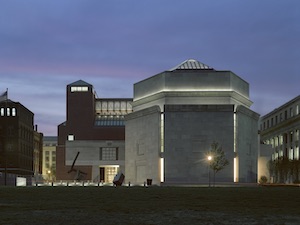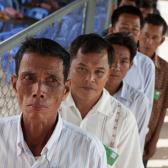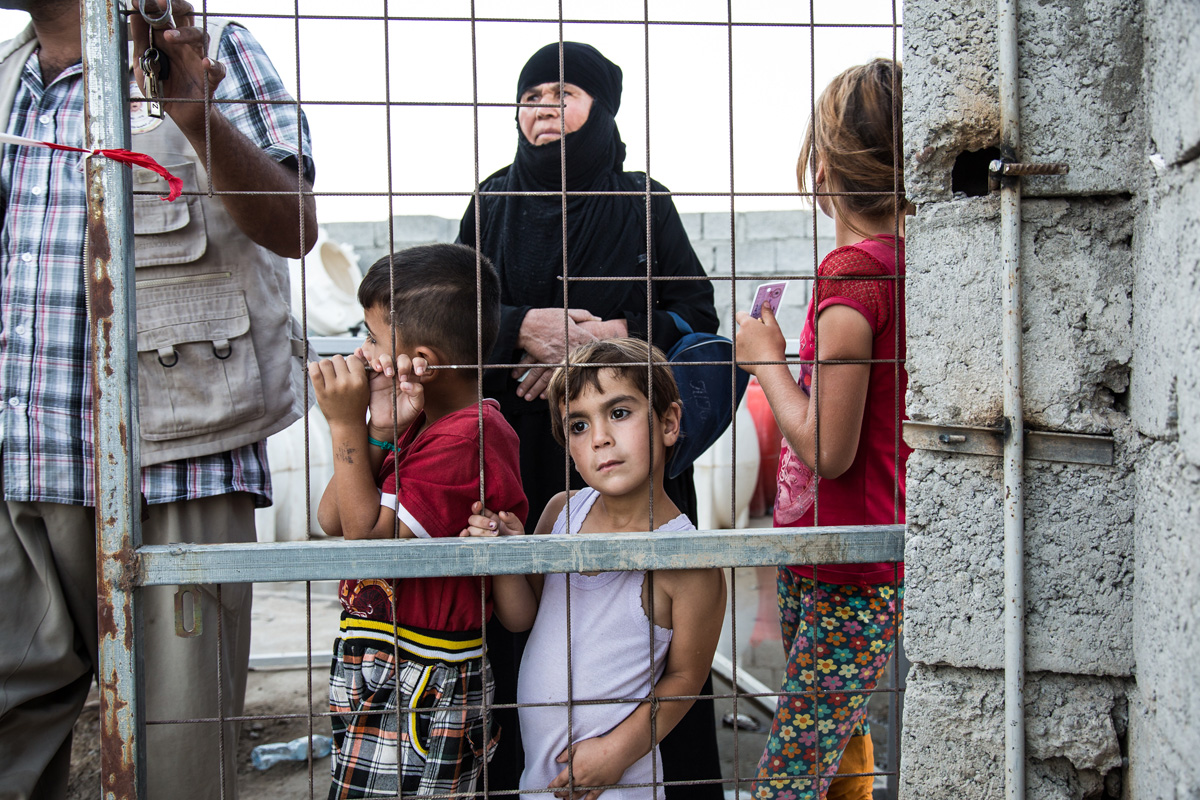-

The Kenyan Elections: Peace Happened
March 22, 2013
In a recent blog on the Huffington Post, Susan Benesch, the Museum’s Edith Everett Genocide Prevention Fellow, discusses the myriad of campaigns and initiatives Kenyans and the international community put in place to prevent violence during the March 4 elections.
-

Death Cheats Justice in Cambodia
March 15, 2013
One of the most senior of the Khmer Rouge leaders on trial in Cambodia for the mass atrocities committed in that country between 1975 and 1979 has died.
-

EU Releases Prevention of Mass Atrocities Assessment
March 13, 2013
The Task Force on the European Union Prevention of Mass Atrocities delivered its assessment of the strengths and weaknesses of the EU’s ability to respond to mass atrocities. This effort in many ways parallels the work of the Museum co-sponsored Genocide Prevention Task Force (GPTF), which in 2008 put forward a blueprint for U.S. policymakers to detect, prevent and respond to genocide and mass atrocities.
-

Kenyans Call for Calm While Awaiting Election Outcome
March 7, 2013
Kenyans have every right to be impatient, since they still don't know who they elected president, after standing under the blazing sun for up to six hours on Monday, to vote. Election day generally went well, as in 2007—prior to the outbreak of post-election violence in which more than 1,300 people were killed after that election's results were disputed. This time around, despite a deadly attack on a police station in the coastal city of Mombasa by a local separatist group and reports of voting irregularities, millions of voters cast their ballots peacefully and have been waiting patiently for the results. The count has gone slowly, and finally the electoral commission announced that its electronic vote-counting system had crashed, inspiring rumors that it was hacked.
-

Peace Propaganda is Not Enough to Save Kenya from Violence
March 4, 2013
One can hardly take a walk, turn on a TV, or even visit YouTube in Nairobi now without being bombarded by peace propaganda—rainbow graffiti murals, ads by soccer stars, PSAs, prayers, and of course a music video, “Rufftone and the GSU,” in which rows of troops from Kenya’s General Service Unit sway fetchingly in their combat fatigues and red berets, singing “let hatred not finish us…we forgive and love each other.” The GSU is a paramilitary force that deals with Kenyan civil disorder, for example by beating up students who demonstrated for multiparty elections a few years ago. Kenyans are keenly hoping that the GSU will be able to stick to singing during the national elections today.
-

Reflections on Rwanda and Cambodia
February 20, 2013
Determining what, exactly, motivated the mass killings under the Khmer Rouge government, from 1975-1979, and marked certain victims for death is an ongoing source of exploration among global human rights activists.
-

Museum Hosts Expert Panel on Incitement and Free Speech
February 11, 2013
The Museum co-sponsored a panel discussion about how to address inflammatory language with policies and practices that do not infringe on free speech.
-

White House Signs New Law to Help Track Down Individuals Sought by ICC
January 15, 2013
President Obama today signed legislation expanding the State Department’s Rewards for Justice program to give the Secretary of State the authority to offer a reward for information leading to the arrest or conviction of anyone wanted by any international tribunal for genocide or other serious human rights violations.
-

Sectarian Tensions Rising in Syria
December 22, 2012
As the war between the Assad regime and rebel forces continues, rising sectarian tensions are leading to more actors taking up arms, according to a report released by the UN High Commissioner for Human Rights. The periodic updates from the Independent International Commission of Inquiry on Syria paint a troubling picture of self-defense groups arising within Christian, Alawite Muslim, and other minority groups inside the country. The report describes clashes in areas formerly controlled by the government between rebel groups and armed "Popular Committees." These committees are formed by those minority groups—sometimes with direct government support—who are worried that the rebels will not protect their communities may take reprisal steps against them. In addition, it notes that newly forming rebel factions are increasingly resistant to positioning themselves under the umbrella of the Free Syrian Army.
-

Debating R2P: Can It Make a Difference?
December 17, 2012
On December 13 at the 92nd Street Y in New York City, the Museum co-sponsored a lively discussion about the Responsibility to Protect, or R2P, the emerging international doctrine aimed at protecting civilians from genocide and other forms of mass atrocities.


